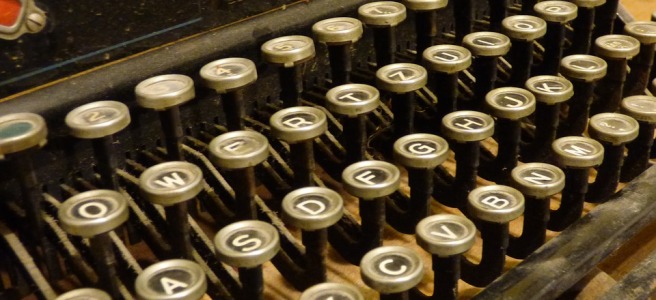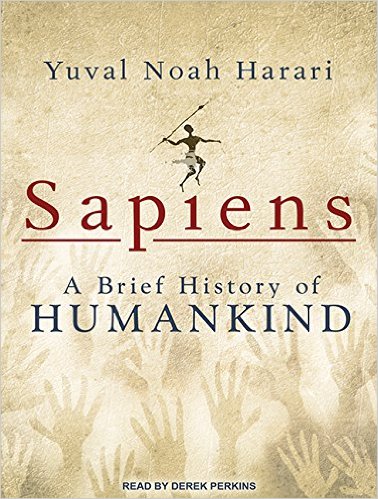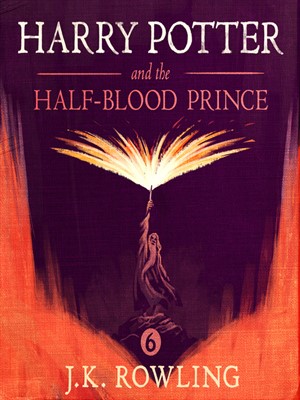Several years ago, I had the opportunity to do an internship in Amman, Jordan. It was an incredible experience, though I’ll admit I was definitely ready to come home by the end of it. I remember thinking in the final weeks of my internship about what I would miss the most – what I would regret leaving. The answer was easy for me:
More than anything else, I would miss the call to prayer (the adhan).
Yes, it’s beautiful (if you’ve never listened to an adhan, you’re missing out), but it was more than the auditory aesthetic I would miss.
Even though I’m not Muslim, there was something incredibly touching (and quite moving) about the way that it broke up the day. The public reminder to take a moment and think about God. The shared understanding that there was something more important than whatever it was you were doing at the moment. The outward manifestation of an inner belief.
Fast forward several years.
I have fallen utterly and completely in love with Washington, DC. Why? Well, many reasons, but one of my favorite things about living here is something you may least expect and is, in fact, not unique to DC at all.*
One of my favorite things about living in DC is Ash Wednesday.
DC is, shall we say, not famous for its religiosity, but every Ash Wednesday, I see people walking around with the cross of ashes on their forehead. And every Ash Wednesday, I see priests waiting hopefully outside busy metro stations, ready for whoever will take a minute out of their busy day to receive the cross of ashes. This is not something I saw in Utah (Mormons are Christian, but we, like some other branches of Christianity, do not usually observe liturgical holidays like Lent, Pentecost, etc.), and it’s something I have loved ever since my first Ash Wednesday in DC when I did a double take coming out of the metro after nearly running into a smiling priest.
In thinking about these two things I love (the adhan and Ash Wednesday in DC), I realize there are two reasons for my random attachment to them. First, I love old things, and things steeped in tradition. And second, they are rare** public demonstrations of faith, and I find that both beautiful and touching.***
Faith is something that is usually quite private (even attending church does feel like such a public display of faith), so it’s nice to sometimes see it represented so boldly and publicly. There’s a boldness and confidence in it that is not only admirable, but timeless.
I thought a lot about this over the past few days. So much of DC is shut down on Good Friday, and that’s yet another example of a beautiful public express of faith. Yes, that’s not how a lot of people think about it. And yes, there are problems in thinking about religion as a shared experience. (After all, it’s shared only within a particular community, whether large or small.) But here’s what I love:
In a world where religion is reserved for the private corners of the mind, unabashedly and publicly (yet respectfully) showing faith in any number of ways is beautiful, thought-provoking, and inspiring; and in a world with so much vitriol, it’s a lovely reminder that there are so many ways in which we’re not so different after all.
*I assume so, anyway, although I have never been anywhere else on Ash Wednesday besides Utah or DC.
**Rare in my experience. Obviously, if I lived in, say, the Vatican, or in a Muslim majority city, it would feel different.
***I fully recognize the problems with religiosity or piety being too exhibitionist (as well as too public) and such, but I still love and appreciate the beauty I find in it.


 and easy read, so I finally dusted off my copy, settled myself on my bed, and read it in one sitting. No spoilers here, but I have to say I was kind of disappointed and that I have conflicting feelings about it. There were a few things that I thought were problematic and that bothered me enough to interfere with my experience reading the book. Minor adjustments could have been made that I think would have fixed those problems. And I’m not talking about plot holes or anything like that; I’m talking about the way certain characteristics or experiences were romanticized, as well as poor character development. That’s what I found problematic. Despite that, the writing was excellent. This is the second book I’ve read by E. Lockhart and this is how I feel about her: she has incredible potential but it’s like her swings keep missing. (Either that or we just don’t get on very well.) I still want to keep track of her work, though, because I feel like when she lands one, it will be phenomenal.
and easy read, so I finally dusted off my copy, settled myself on my bed, and read it in one sitting. No spoilers here, but I have to say I was kind of disappointed and that I have conflicting feelings about it. There were a few things that I thought were problematic and that bothered me enough to interfere with my experience reading the book. Minor adjustments could have been made that I think would have fixed those problems. And I’m not talking about plot holes or anything like that; I’m talking about the way certain characteristics or experiences were romanticized, as well as poor character development. That’s what I found problematic. Despite that, the writing was excellent. This is the second book I’ve read by E. Lockhart and this is how I feel about her: she has incredible potential but it’s like her swings keep missing. (Either that or we just don’t get on very well.) I still want to keep track of her work, though, because I feel like when she lands one, it will be phenomenal. Sapiens by Yuval Noah Harari was another one I’d heard great things about, so I decided to give it a go. It was a fascinating read, although I definitely took issue with a number of things Harari says. He quite clearly views religion the way most of would view, say, monsters under the bed: an eyeroll-worthy fiction. At the same time, he will describe an occurrence or development and admit there is no scientific or biological explanation for it. One primary example of this is what he calls the cognitive revolution, where human brains evolved dramatically and became capable of more complex ideas and speech, and capable of creating shared stories. It was a great read, but I felt Harari was more than a little condescending. Perhaps most problematic of all, he completely fails to take into account this important lesson that millions of children (and adults) learned from Harry Potter: “Of course it is all happening inside your head, Harry, but why on earth should that mean that it is not real?” He completely fails to recognize truth and reality in what we may call “fictions.” He uses money as an example, calling it the most successful and widespread “fiction” we have invented. And he is right to a large extent. Money in and of itself has no value. It holds value only because we say it does and we believe it does, and our neighbors believe it, too. And he’s right. But that doesn’t change the fact that you can take your $10 bill, or your piece of plastic down to a store and come back with food for the day. You can call money “imagined” until you’re blue in the face, but you’ll still need it just as much as your neighbor. I found his condescending bias more than a little grating.
Sapiens by Yuval Noah Harari was another one I’d heard great things about, so I decided to give it a go. It was a fascinating read, although I definitely took issue with a number of things Harari says. He quite clearly views religion the way most of would view, say, monsters under the bed: an eyeroll-worthy fiction. At the same time, he will describe an occurrence or development and admit there is no scientific or biological explanation for it. One primary example of this is what he calls the cognitive revolution, where human brains evolved dramatically and became capable of more complex ideas and speech, and capable of creating shared stories. It was a great read, but I felt Harari was more than a little condescending. Perhaps most problematic of all, he completely fails to take into account this important lesson that millions of children (and adults) learned from Harry Potter: “Of course it is all happening inside your head, Harry, but why on earth should that mean that it is not real?” He completely fails to recognize truth and reality in what we may call “fictions.” He uses money as an example, calling it the most successful and widespread “fiction” we have invented. And he is right to a large extent. Money in and of itself has no value. It holds value only because we say it does and we believe it does, and our neighbors believe it, too. And he’s right. But that doesn’t change the fact that you can take your $10 bill, or your piece of plastic down to a store and come back with food for the day. You can call money “imagined” until you’re blue in the face, but you’ll still need it just as much as your neighbor. I found his condescending bias more than a little grating. days. Whoops. Obviously, no review is necessary for Harry Potter, but I did want to mention a couple of things that really stood out to me this time around. 1) I totally underrated Half-Blood Prince in my memory. I typically listed it as my third or fourth favorite of the series, but listening to it this time around, I feel like it deserves to be much higher. 2) It really is a master class in weaving a complex and intricate plot. Totally mind-blowing. And 3) I definitely prefer the later books in the series, but am stunned by how everything connects together. It’s not for nothing that these are among my favorite books of all time. Harry Potter will always and forever be close to my heart, and it will always feel like coming home.
days. Whoops. Obviously, no review is necessary for Harry Potter, but I did want to mention a couple of things that really stood out to me this time around. 1) I totally underrated Half-Blood Prince in my memory. I typically listed it as my third or fourth favorite of the series, but listening to it this time around, I feel like it deserves to be much higher. 2) It really is a master class in weaving a complex and intricate plot. Totally mind-blowing. And 3) I definitely prefer the later books in the series, but am stunned by how everything connects together. It’s not for nothing that these are among my favorite books of all time. Harry Potter will always and forever be close to my heart, and it will always feel like coming home. Next up is a poetry collection. Phillis Wheatley’s Poems on Various Subjects, Religious and Moral. I’ll be quite candid: Phillis, as much as I admire her, is not my favorite poet, BUT that doesn’t mean that I didn’t get quite a bit out of reading this. It went a long way in helping me understand her, although I still feel like I have a ways to go. One of the things that really stood out to me was how intelligent she clearly was. She referenced mythology and the Bible like nobody’s business, and in a way that shows a deep understanding – not just a cursory awareness of it. And some ideas expressed were truly remarkable and thought-provoking. It was definitely a worthwhile read for me. Even if I wasn’t, you know, writing a novel about her.
Next up is a poetry collection. Phillis Wheatley’s Poems on Various Subjects, Religious and Moral. I’ll be quite candid: Phillis, as much as I admire her, is not my favorite poet, BUT that doesn’t mean that I didn’t get quite a bit out of reading this. It went a long way in helping me understand her, although I still feel like I have a ways to go. One of the things that really stood out to me was how intelligent she clearly was. She referenced mythology and the Bible like nobody’s business, and in a way that shows a deep understanding – not just a cursory awareness of it. And some ideas expressed were truly remarkable and thought-provoking. It was definitely a worthwhile read for me. Even if I wasn’t, you know, writing a novel about her.